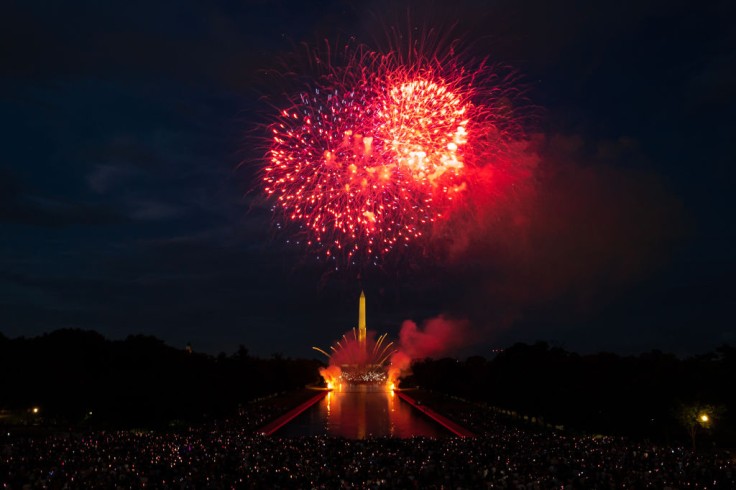
Fireworks are an important segment of July Fourth commemorations across the United States, with many towns and cities hosting professional displays each year. In some places, little, less vigorous fireworks are typical at private parties.
States Where Some Fireworks Are Legal
The U.S. Consumer Product Safety Commission has prohibited various kinds of fireworks, such as M-80s and cherry bombs, at the federal level. However, state and local management differ. In 49 states and Washington, D.C., certain kinds of fireworks are lawful in some range.
Alabama, Alaska, Arizona, Arkansas, California, Colorado, Connecticut, Delaware, Florida, Georgia, Hawaii, Idaho, Illinois, Indiana, Iowa, Kansas, Kentucky, Louisiana, Maine, Maryland, Michigan, Minnesota, Mississippi, Missouri, Montana, Nebraska, Nevada, New Hampshire, New Jersey, New Mexico, New York, North Carolina, North Dakota, Ohio, Oklahoma, Oregon, Pennsylvania, Rhode Island, South Carolina, Tennessee, Texas, Utah, Vermont, Virginia, Washington, Washington, D.C., West Virginia, Wisconsin, Wyoming.
In Utah, fireworks are permitted from 11 a.m. to 11 p.m. on July 2-5 and 22-25, with prolonged hours until midnight on July 4 and 24. Vendors set up tents in parking lots, and people like Bella Dejel buy small fireworks, though aerial types are constrained.
Cities in Utah County are cautious of high fire dangers. Lehi bans fireworks north of Timpanogos Highway and allocates particular parks for fireworks. Saratoga Springs, Lindon, Eagle Mountain, Provo, and Spanish Fork have several constraints and allocated areas.
The Utah Department of Public Safety lists constrained areas and offenses can result in a $1,000 fine. Fire officials urge alertness, proper disposal of fireworks, and keeping them away from small children.
One State Where All Fireworks Are Illegal
Massachusetts is the sole state where it is prohibited for private citizens to sell, use, or obtain any fireworks, including sparklers and firecrackers.
Public displays are typical, but a license and permit are necessary for any fireworks use. This prohibition has been in place since 1943 and remains due to concerns over safety, with nearly 1,000 fires and several wounds recorded between 2013 and 2022.
States with Restricted Fireworks
Many states, including Washington, D.C., have restrictions on fireworks despite allowing professional displays with proper permits. These states include:
Arizona, California, Colorado, Connecticut, Delaware, Idaho, Illinois, Maryland, Minnesota, New Jersey, New York, North Carolina, Oregon, Rhode Island, Vermont, Virginia, Washington, D.C., Wisconsin
In Illinois and Vermont, only sparklers and novelty smoke devices are permitted for sale to the general public. These uniqueness include small amounts of pyrotechnic material and do not meet the standards for customer fireworks.
Fireworks for the Fourth of July
Hawaii, Nevada, and Wyoming allow counties to give their own fireworks regulations. For example, in Hawaii, counties can administer stricter rules than the state, such as Honolulu's ban on all fireworks except firecrackers with a permit.
Likewise, local officials in Nevada and Wyoming have the authority to manage fireworks, resulting in numerous laws across different counties.
States that partially allow fireworks typically limit their use to non-aerial and non-explosive types, often referred to as "safe and sane" fireworks.
These include items that don't blow up or fly and are considered less hazardous. California, for example, only permits fireworks with a "safe and sane" seal, prohibiting parts like skyrockets, bottle rockets, Roman candles, and firecrackers.
States that prohibit certain fireworks often allege the dangers of wounds and property loss. Wildfire-prone areas also highlight the raised danger of fires from fireworks.
In 2023, the U.S. Consumer Product Safety Commission recorded eight demises and about 9,700 injuries related to fireworks, emphasizing the possible hazards.
To report prohibited fireworks, citizens are invited to contact their local fire departments or law enforcement agencies. Reports can also be submitted to the U.S. Bureau of Alcohol, Tobacco, Firearms, and Explosives, which oversees all explosives, including fireworks.
Related Article: US Independence Day 2024: Nation Celebrates with Parades, Patriotism, and Increased Travel on Fourth of July